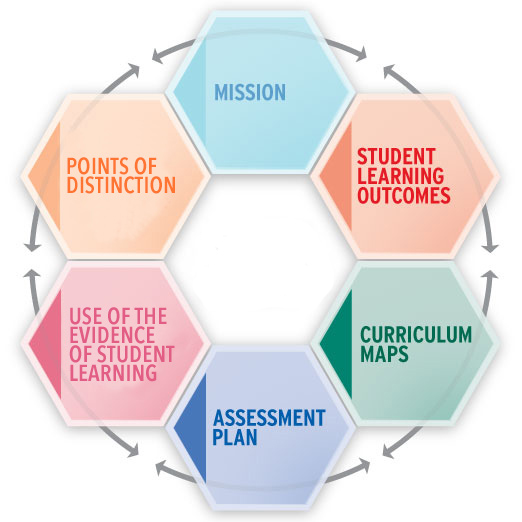The quality of the academic experience is also about community-building, professional and scholarly activities, seminars by renowned scholars, service opportunities and other events that highlight the holistic experience designed around student learning.
Suggested Content
- Vocation information
- Required integrative experiences (descriptions and photos)
- Research topics
- Service learning projects
- Locations for internships
- Student conference presentations
- Faculty and student scholarship
